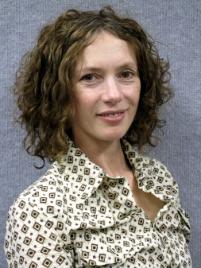Water quality changes 'may be hindering' capacity of reefs to regenerate
Published on 11 October, 2012
Changes in water quality, including increased sedimentation and pesticide levels, may be hindering the capacity of some coral communities on island fringing reefs in Keppel Bay near Rockhampton to regenerate by recruitment and regrowth after disturbances.
That's according to CQUniversity Post Doctoral Researcher Dr Alison Jones who will deliver a presentation from 1pm-2pm on Friday, October 12, as part of the Institute for Resource Industries and Sustainability (IRIS) series.
The presentation is free and open to anyone interested in coral research in the Keppels. It will be delivered from Rockhampton Campus (building 29/G.07) with video links to the main campus buildings in Mackay, Gladstone and Bundaberg.
Dr Jones emphasises that regeneration from flooding requires the survival of at least some pockets of reproductively healthy and biodiverse corals and strong juvenile coral recruitment, whilst regeneration from bleaching requires good conditions for coral tissue regeneration.
"In particular, the capacity for regeneration of the coral cover on reef flats is of key importance to tourism as these are the reefs upon which businesses depend for snorkeling and coral viewing!"
"Coral communities on island fringing reefs in Keppel Bay are now well recognised for their capacity to rebound strongly following disturbance such as bleaching," Dr Jones says.
"A recent study has highlighted the strong re-growth of coral cover within a year of bleaching in 2006 from the remnant tissue on surviving coral fragments.
"In addition, the capacity of some of the most structurally important species to shuffle from a 'stress-sensitive' to 'stress-tolerant' type following bleaching provides some species with the mechanism to temporarily withstand warmer than normal seawater temperatures.
"But they can switch back to the more efficient partner - in terms of 'photosynthetic' efficiency* - when conditions are less stressful.
"Their very existence at the mouth of the second largest easterly flowing catchment in Australia and in spite of periodic extreme flood events also suggests that Keppel reefs can cope with periodic disturbance from salt-laden and sediment-laden flood plumes. However, significant changes in the use of land along the catchment since the 1960s and 1970s has introduced new challenges for Keppel reefs."
Dr Jones is based at CQUniversity's Centre for Environmental Management. She has strong community ties in the Keppels region having worked in marine tourism for many years. Her interests include conservation volunteering, SCUBA diving and coral husbandry.
* Photosynthesis is the process by which carbohydrates are synthesized from carbon dioxide and water using light as an energy source


